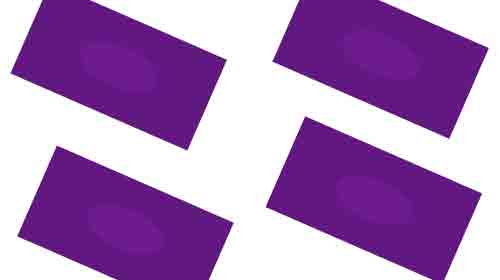Let’s start understanding what is a credit score.
A credit score is a numerical value which shows your creditworthiness as a single number. The credit score uses information from your credit report an turns it into a number, which is the credit score.
A credit report contains detailed information, including your credit score, personal information, current consumer credit providers, consumer credit inquiries, consumer credit accounts, consumer defaults, consumer serious credit infringements, commercial credit history, public information, personal statements, file access record.

Why do we need a credit score?
Simply because when someone borrow money, the lender needs to trust the borrower will give back those money.
For example, would you lend to your friend Tom $10,000? Well, you need to trust Tom will give you back $10,000. And, to trust he will give you back the amount, you will consider his previous behaviors. One question you may ask yourself is: “Did he gave back money on time after he borrowed it?” or “Can I ask someone else who already lended money to Tom if Tom paid back on time”?
To answer those kind of questions and streamline the landing industry while lending big amount of money Fair, Isaac and Company, founded by Bill Fair and Earl Isaac, in 1956 created a mathematical model that used a borrower’s history to measure the risk. The company with its first industry-standard algorithm in 1989: the FICO score.
The FICO score is a three-digital number that indicates a lender how safe it is to lend money to you. The higher the safest is to lend money to you, and higher are the chances you can get better terms on your loan. The lower it is the riskier is to lend money to you and, if a lender accept to take the risk, the worst are the terms of your loan.
What does a credit score mean?
When a lender look at your credit score, uses it to determine how likely it is that you will pay them on time if they issue you a loan or credit card. In fact, sometimes credit scores are called risk scores because they help lenders assess the risk that you won't repay your debt as agreed.
NOTE a credit score is generally updated monthly, and they are not stored as part of your credit history. Credit scores are generated when a lender, or yourself, requests a credit report, and generally they are delivered with the report. Credit scores are point-in-time checks and they can go up or down over time.
Understanding credit score factors.
Your credit score shows only your past relationship with debt. Every time you borrow or repay money the lender reports that activity to the credit bureau.
There are five main factors that impact your credit score
Payment history. It accounts for 35% of the credit score.
NOTE this is the largest proportion of your credit score. The payment history looks at how regularly you pay your bills on time.
- TIP Pay bills on time it become really important for your credit score. As this is the base of the credit score system.
- TIP Late or missed payments can affect negatively your score.
- TIP Avoid multiple late payments.
FIX If you had late or missed payment you need to start pay bills on time, and your credit score will get better.
Credit to debt ratio. This is the amount of debt you have relatively to how much is available to you, it is also called credit utilisation ratio. It accounts for the 30% of your score. This is calculated by dividing how much credit you use on a monthly basis by the total amount of credit available to you. So if you have three credit cards with a combined credit limit of $10,000, and you have a total combined balance of $3,000 on all three cards, your utilization ratio is 30%.
- TIP Most experts recommend keeping your ratio below 30%, and for the best scores, below 10%.
- TIP Pay down your credit card debt.
- Credit History Length. How long you've used credit, including your oldest and newest accounts, as well as the average age of all your open accounts, it weights for 15% of your score. Generally, the longer you've used credit, the higher your scores.
- TIP Getting a credit card early, and use it conservatively, can help you have a longer credit history and a better credit score later in life.
- Credit mix. It accounts for the 10% of your credit score, and it refers to the variety of types of credit you are using. If you have a wider variety of credits, like credit cards, student loans, installment loans.
- TIP There are three types of credits. And an ideal credit score has all three.
- Revolving. Which are known as credit cards.
- Installments. Like car and students loans.
- Mortgages.
- New lines of credit and credit inquiries. The total amount of new credit accounts for 10% of your score. This takes into consideration how many accounts you've opened recently and how many recent hard inquiries you have on your credit report. Too many new accounts and inquiries could indicate greater credit risk.
- TIP If you are shopping for a mortgage, for example, you have a window of one to two months during it asking for credit lines won’t affect your credit score.
- TIP This refers only to hard inquiries.
- A hard inquiry occurs when a lender with whom you've applied for credit reviews your credit report as part of their decision-making process. This type of inquiry appears on your credit report and can influence your credit scores.Which are known as credit cards.
- A soft inquiry occurs in cases where you check your own credit or when a lender or credit card company checks your credit to preapprove you for an offer. Soft inquiries do not impact your credit scores.
Experian credit score range
We partner with Experian, if you got your credit report from us and you are tracking your score with us, please see below the table which gives you an idea of your score range.
| Excellent | 800-1,000 | Indicates an excellent credit score and is well above the average | |
| Very good | 700-799 | Indicates a very good credit score and is above the average | |
| Good | 625-699 | Indicates a good credit score and is in the average | |
| Fair | 550-624 | Indicates a fair credit score | |
| Below average | 0-549 | Indicates a below average credit score and is likely to be considered a poor credit score by credit providers |
How can get my credit score and credit report?
Sign up for a credit monitoring today! Or get just one full comprehensive report now
For only $11.90/month you will have a monthly full comprehensive report and access to special deals
If you want to know your credit score and have a full and comprehensive credit report you can apply directly online through us. We have monthly memberships with access to special deals or one off checks. Credit bureau also can give a similar check for free once a year.
Subscribe to our top stories and offers.
We will continue to update the Hub; if you have any question or suggestion, please contact us!



